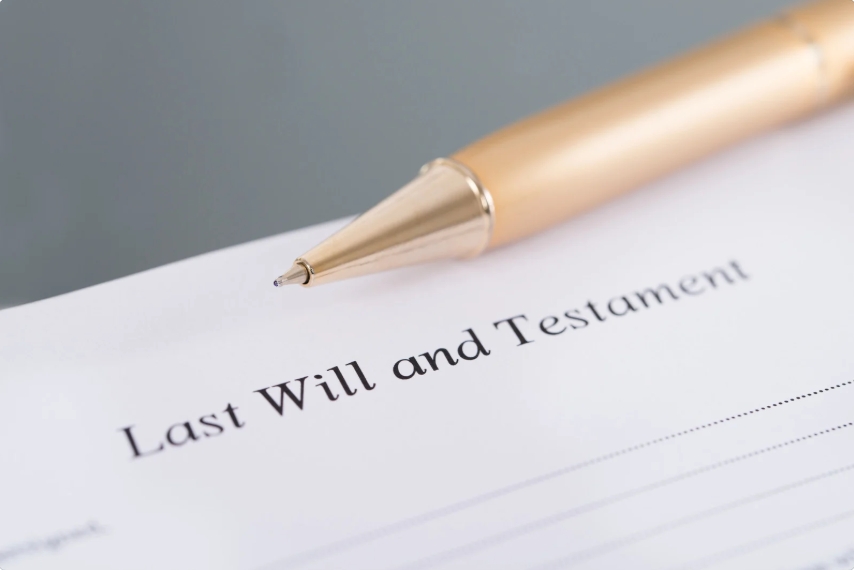Creating a will is one of the most important steps you can take to protect your loved ones and ensure your assets are distributed according to your wishes. Yet many Australians die without a will, leaving their estate to be handled under NSW’s intestacy laws.
If you die without a valid will—known as dying intestate—your estate will be distributed based on a legal formula, which may not reflect your personal relationships or intentions. This guide explains what happens when someone dies without a will in NSW and why planning ahead is essential.
Key Takeaways
- Dying without a will in NSW means your estate is distributed according to intestacy laws, not personal wishes.
- The Succession Act 2006 (NSW) outlines a strict order of inheritance for eligible relatives.
- If no eligible relatives are found, your estate may pass to the State of NSW.
- Dying intestate can cause delays, legal costs, and family disputes.
- Creating a valid will ensures your estate is managed according to your preferences.
What Does It Mean to Die Intestate?
In legal terms, dying intestate means passing away without leaving a valid will. When this occurs, your estate is managed and distributed under the Succession Act 2006 (NSW), which sets out a fixed hierarchy of beneficiaries based on blood or legal relationships.
If you have no valid will, you lose the opportunity to:
- Appoint your preferred executor
- Choose specific beneficiaries
- Provide for non-family members or charities
- Minimise family disputes and administrative delays
How Is the Estate Distributed?
When someone dies intestate in NSW, the estate is distributed according to a legislated formula. Here’s how the process generally works:
-
Spouse
If the deceased leaves a spouse but no children from a previous relationship, the entire estate passes to the surviving spouse.
If the deceased has children from a previous relationship, the estate is divided between the spouse and the children, but not in equal shares.
-
Children
If there is no surviving spouse, the estate is divided equally among the deceased’s children. If a child has already died, their share may pass to their children (i.e. the deceased’s grandchildren).
-
Parents
If there is no spouse, children or grandchildren, the estate goes to the surviving parent(s).
-
Siblings
If no parents survive, the estate is shared between siblings. If a sibling has died, their children (nieces and nephews) may inherit their share.
-
Extended Family
If there are no siblings, the estate may go to grandparents, aunts and uncles, or cousins, depending on the family tree.
-
The State of NSW
If no eligible relatives can be identified, the estate becomes bona vacantia and is passed to the NSW Government.
Who Administers the Estate?
Without a will, there is no named executor. Instead, an eligible person—often the next of kin—must apply to the Supreme Court of NSW for Letters of Administration.
This person becomes the estate’s administrator and is responsible for:
- Identifying and valuing assets
- Paying debts and taxes from the estate’s assets
- Distributing the estate according to intestacy rules
Applying for Letters of Administration can be time-consuming and may delay the distribution of assets.
Common Problems That Arise Without a Will
Dying without a will can lead to a number of complications, including:
-
Family Disputes
Fixed distribution rules may not reflect blended families, estranged relationships, or other personal circumstances, often leading to disagreements.
-
Delays and Legal Costs
The intestacy process typically takes longer than when a valid will is in place. Legal fees can also reduce the estate’s overall value.
-
Unintended Beneficiaries
Close friends, carers, or charities will not receive anything under intestacy laws, even if you intended to provide for them.
-
Missed Opportunities for Tax Planning
Dying intestate may result in missed opportunities to minimise tax liabilities or structure your estate in a tax-effective way.
How to Avoid Dying Intestate
The best way to avoid intestacy is to create a valid will with the help of a legal professional. A will allows you to:
- Choose your executor
- Decide how your estate will be distributed
- Nominate guardians for minor children
- Provide for people or causes outside your immediate family
- Minimise the risk of disputes and delays
It’s also important to review and update your will regularly, especially after major life events such as marriage, divorce, the birth of a child, or acquiring significant assets.
Conclusion
Dying without a will in NSW can leave your loved ones facing unnecessary stress, legal hurdles, and outcomes that may not reflect your intentions. The intestacy rules offer a default distribution plan, but they are no substitute for a personalised, legally binding will.
If you haven’t yet created or updated your will, now is the time to take action. Working with an experienced estate planning lawyer ensures your wishes are honoured and your family is protected from the uncertainty of intestacy.
Contact us today to make an appointment with one of our experienced estate planning lawyers who will be able to step you through the estate planning process. We have years of experience helping people with their estate planning needs throughout the Newcastle, Lake Macquarie and Hunter region.
This blog was written by,
Chris Berryman
Chris practises in the areas of Conveyancing and
Business & Commercial Advice








